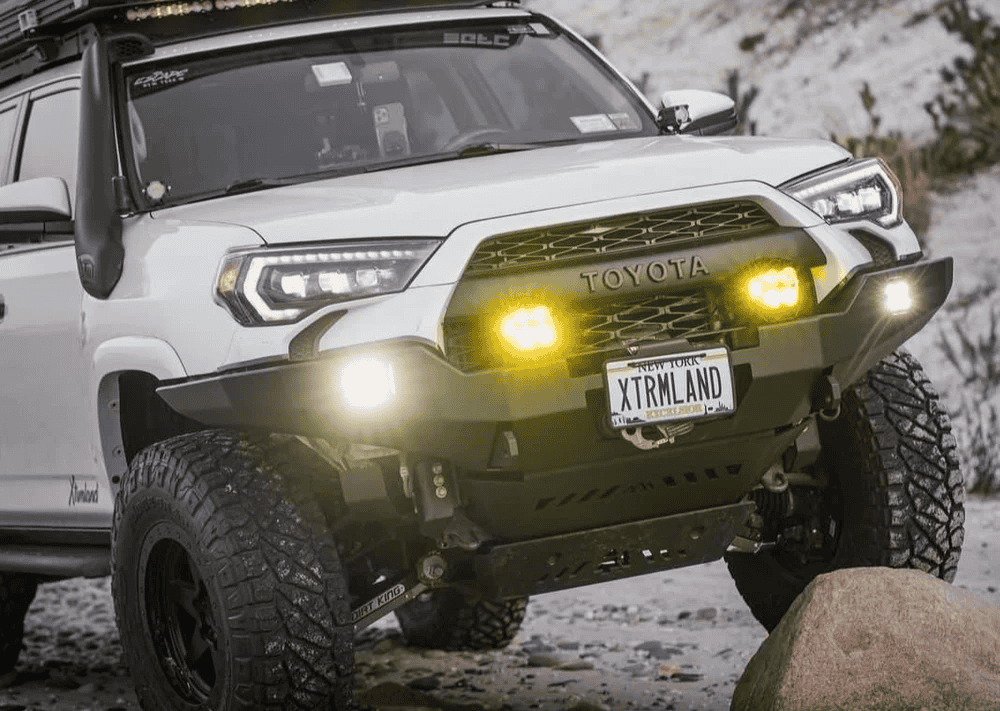Overland Vehicles

A minimalist overland setup is about carrying only what earns its space. Fewer items mean faster camp routines, less fatigue, better fuel economy, and a quieter cabin. Start by defining the mission. Where are you going, for how long, in what season, and with how many people. Your route, weather, and terrain determine the gear list, not the other way around.
Weight discipline is non negotiable. Know your vehicle’s payload rating, weigh the rig packed, and keep a ten percent buffer for water and food. Concentrate mass low and near the center to preserve handling and braking. Avoid bolt ons that add bulk without serving the mission. A clean rig is safer and easier to maintain on the trail.
Set a rule for each category. One sleeping kit per person, one cooking system for the group, one recovery kit sufficient for your terrain. If something does not serve multiple uses, it needs a strong reason to ride along. Simplicity shortens setup time and leaves more hours on the trail or by the fire.
Minimalism does not mean discomfort. It means the right systems, sized correctly, placed where you can reach them with cold hands in the dark.
Power your essentials first. A compact lithium battery paired with a simple charge source keeps a twelve volt fridge and lights alive. Many travelers rely on alternator charging through a DC to DC charger, adding a modest solar panel only if camped for days. Skip the oversized inverter unless you truly need it. Headlamps, a small lantern, and one area light cover most camps. Cable management and labeled ports prevent confusion at night.
For those who prefer clean, quiet electrical that is mounted and protected, explore our Overland rigs to see how integrated systems stay minimal yet dependable.
Plan four liters per person per day as a baseline, more in hot climates. Use simple jugs with a spigot rather than complex pump networks. Keep a gravity filter or purifier for refills on long routes. Cooking stays simple with a compact stove, one pot, one pan, and a tight pantry of staples. Focus on foods that cook fast and clean up easily to reduce fuel use and water demand. A small cutting board, a knife you actually sharpen, and a scrub pad round out the kitchen.
If you want that same simplicity built into a secure mount and crash safe storage, a Custom overland upfit can anchor water and galley modules without adding clutter.
Good sleep starts with insulation from ground and air. Pair a quality sleeping pad with a bag or quilt matched to the coldest expected night. A low profile awning or a simple tarp handles sun and drizzle without crowding the roof. Choose a tent or interior platform that deploys fast and packs small. Keep bedding in a dry bag so it stays clean when weather turns.
Shakedown trips reveal what you actually use. Run a one night loop near home with the full kit. After each outing, mark every item as used, unused, or missing. Remove the dead weight. Adjust what is hard to reach. If you did not touch it twice, it probably stays home next time.
Navigation and comms must stay dependable. Download offline maps, carry a paper backup, and confirm devices are charged before rollout. A compact first aid kit tailored to your team’s skills, a tire repair kit, a quality compressor, a shovel, and traction aids cover most recovery needs. Tools should match your vehicle’s fasteners. One well chosen roll does more than a bin of random steel.
Storage is where minimalism shines. Soft sided bags compress and prevent rattles. Clear bins with labels keep the group from opening everything to find a spoon. Build your load around three zones. Drive zone holds recovery, first aid, and tools. Camp zone holds kitchen and shelter. Personal zone holds clothing and hygiene. Pack so you can reach the drive zone without unloading the camp zone.
Route planning matters as much as gear. Choose camps with natural wind breaks and firm ground to protect sleep and equipment. Respect fire risk, pack out micro trash, and leave the site cleaner than you found it. The lightest footprint is often the most memorable trip.
When you decide to move beyond loose bins and quick clamps, a purpose built install can retain your minimalist philosophy while improving safety and durability. Our team focuses on quiet mounts, proper weight distribution, and serviceable layouts that keep trailside fixes simple. Curious how that translates to your rig. Read more about our process on Why choose OZK Customs.
Strong minimalism is not about suffering. It is about clarity. When every item has a job and a place, the day flows. You pack faster, drive longer, and sleep deeper. That rhythm is the point of the road.
Bold next step, built your way If you want the benefits of a minimalist overland setup without the trial and error, we can help. From compact power to refined storage and water solutions, we design light, integrated systems that fit your travel style and keep your payload in check. Explore our Overland rigs and see how a Custom overland upfit turns a good kit into a cohesive vehicle. Share your route goals, and we will map the essentials, remove the noise, and deliver a clean, trail ready build from our Fayetteville Arkansas shop.
Want a purpose built minimalist rig without the guesswork? Our team designs and installs clean, integrated systems that stay light, quiet, and trail ready. Tell us how you travel, and we will map the essentials, delete the extras, and deliver a dialed setup you can trust from day one. Start your build plan now.
ADDRESS:
6159 E Huntsville Rd, Fayetteville, AR 72701
PHONE:
(479) 326-9200
EMAIL:
info@ozkvans.com